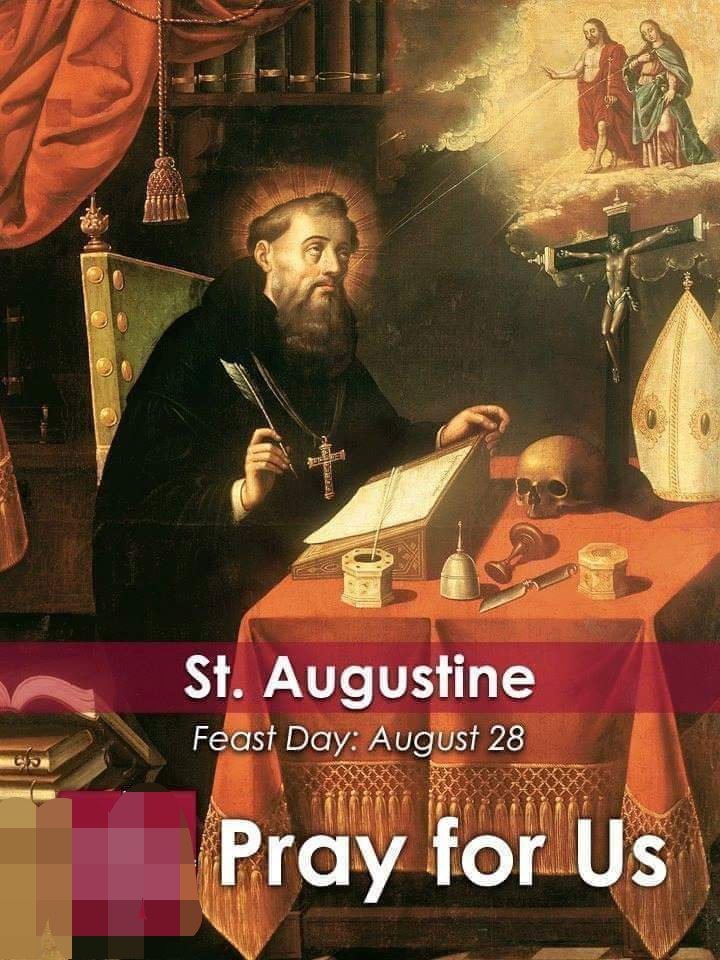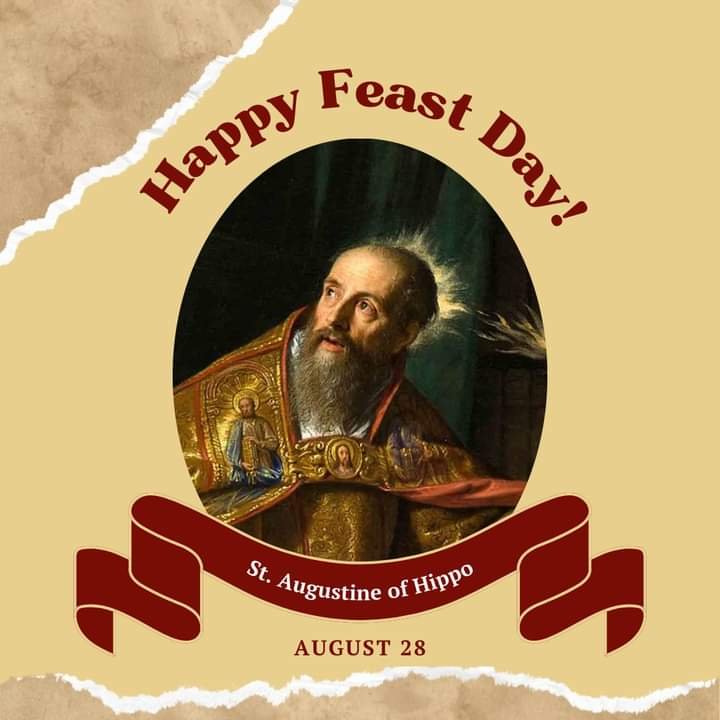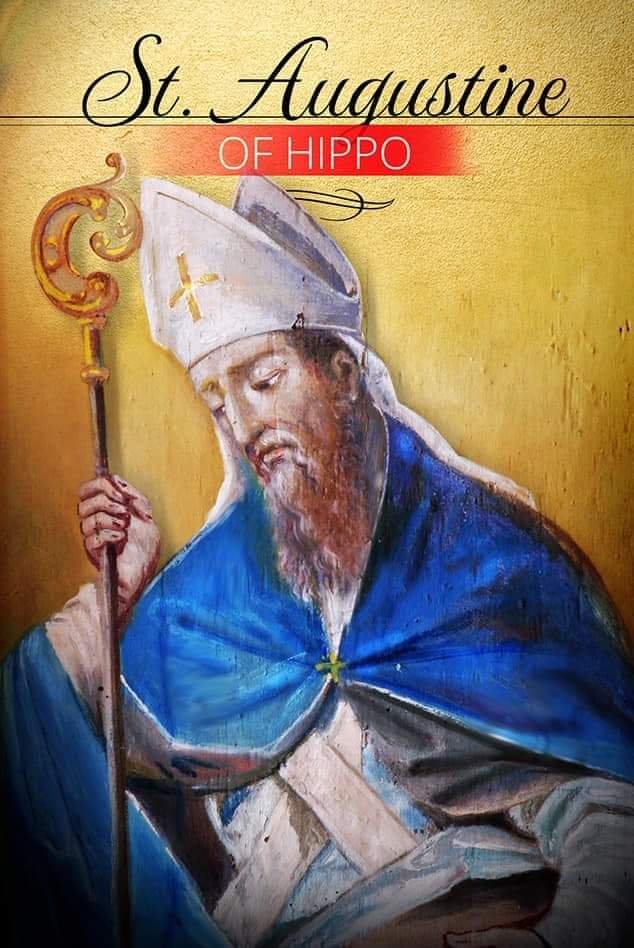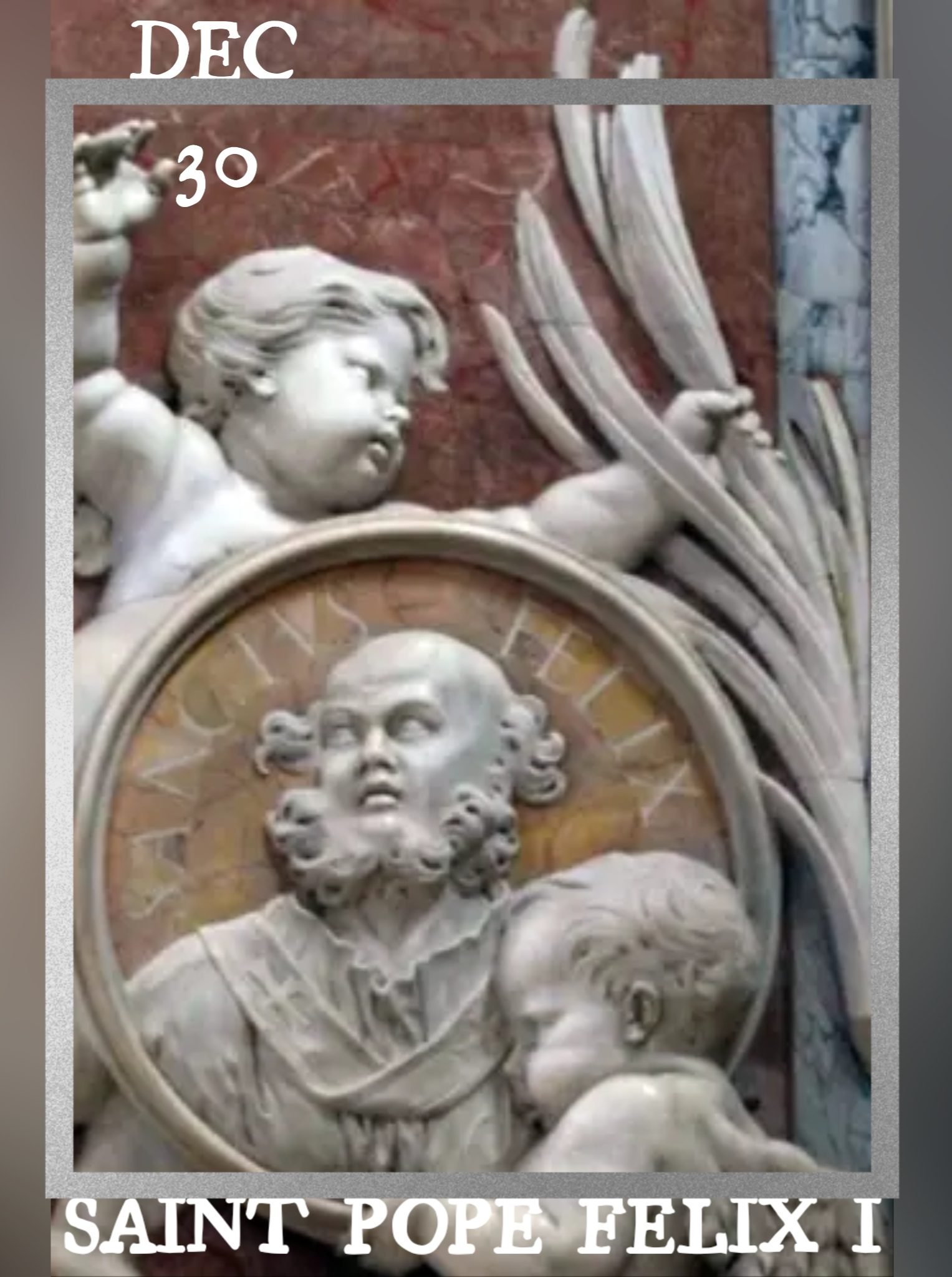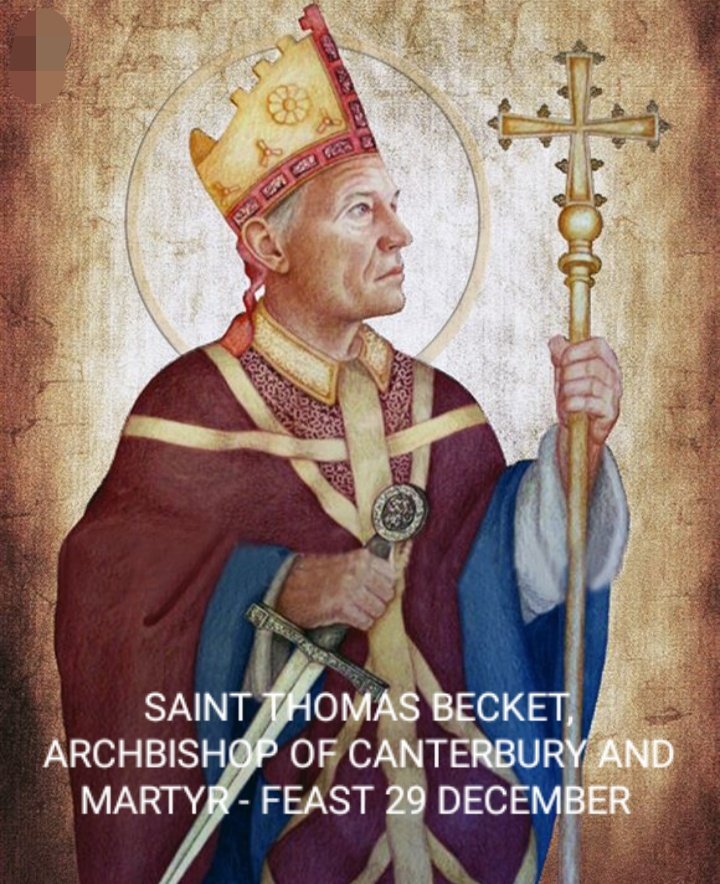
NOVENA PRAYERS FOR THE NATIVITY OF THE BLESSED VIRGIN MARY
August 28, 2024
Revelation 3:20
August 28, 2024FEAST OF SAINT AUGUSTINE OF HIPPO, BISHOP AND DOCTOR OF THE CHURCH
FEAST DAY – 28th AUGUST
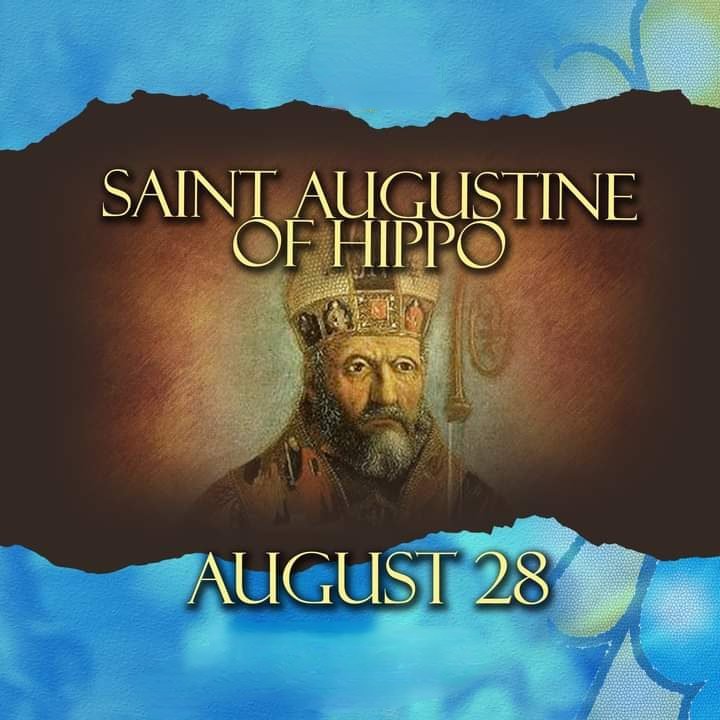
Augustine of Hippo (13 November 354 – 28 August 430), also known as Saint Augustine, was a theologian and philosopher of Berber origin and the bishop of Hippo Regius in Numidia, Roman North Africa. His writings influenced the development of Western philosophy and Western Christianity, and he is viewed as one of the most important Church Fathers of the Latin Church in the Patristic Period. His many important works include The City of God, On Christian Doctrine, and Confessions.
According to his contemporary, Jerome, Augustine “established anew the ancient Faith”. In his youth he was drawn to the eclectic Manichaean faith, and later to the Hellenistic philosophy of Neoplatonism. After his conversion to Christianity and baptism in 386, Augustine developed his own approach to philosophy and theology, accommodating a variety of methods and perspectives.
Believing the grace of Christ was indispensable to human freedom, he helped formulate the doctrine of original sin and made significant contributions to the development of just war theory. When the Western Roman Empire began to disintegrate, Augustine imagined the Church as a spiritual City of God, distinct from the material Earthly City.
The segment of the Church that adhered to the concept of the Trinity as defined by the Council of Nicaea and the Council of Constantinople closely identified with Augustine’s On the Trinity. Augustine is recognized as a saint in the Catholic Church, the Eastern Orthodox Church, and the Anglican Communion. He is also a preeminent Catholic Doctor of the Church and the patron of Augustinians. His memorial is celebrated on 28 August, the day of his death.
Augustine is the patron saint of brewers, printers, theologians, and a number of cities and dioceses. His thoughts profoundly influenced the medieval worldview. Many Protestants, especially Calvinists and Lutherans, consider him one of the theological fathers of the Protestant Reformation due to his teachings on salvation and divine grace. Protestant Reformers generally, and Martin Luther in particular, held Augustine in preeminence among early Church Fathers. From 1505 to 1521, Luther was a member of the Order of the Augustinian Eremites.
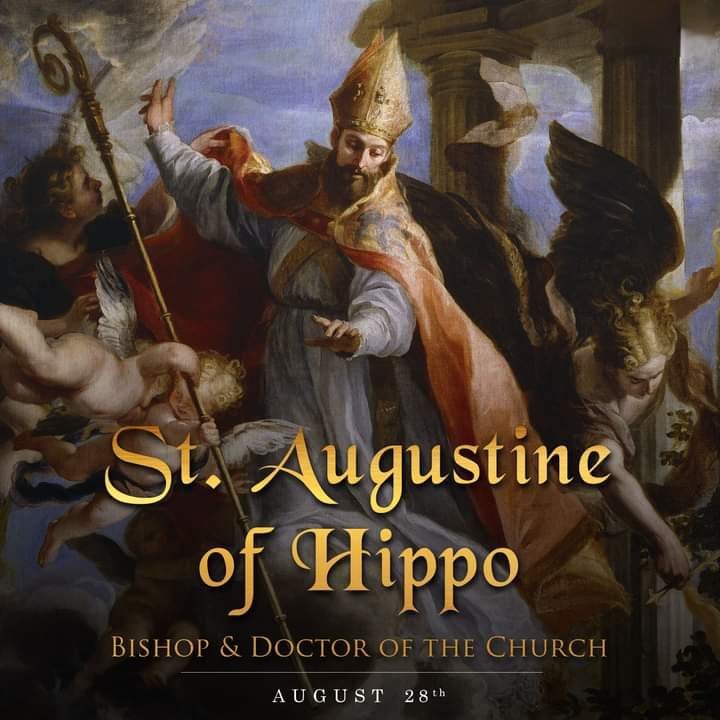
In the East, his teachings are more disputed, and were notably attacked by John Romanides, but other theologians and figures of the Eastern Orthodox Church have shown significant approbation of his writings, chiefly Georges Florovsky.
The most controversial doctrine associated with him, the filioque, was rejected by the Orthodox Church. Other disputed teachings include his views on original sin, the doctrine of grace, and predestination.
Though considered to be mistaken on some points, he is still considered a saint and has influenced some Eastern Church Fathers, most notably Gregory Palamas. In the Orthodox Church, his feast day is celebrated on 15 June. The historian Diarmaid MacCulloch has written: “Augustine’s impact on Western Christian thought can hardly be overstated; only his beloved example, Paul of Tarsus, has been more influential. Westerners have generally seen Paul through Augustine’s eyes.”
Augustine of Hippo, also known as Saint Augustine or Saint Austin, is known by various cognomens throughout the many denominations of the Christian world, including Blessed Augustine and the Doctor of Grace. Hippo Regius, where Augustine was the bishop, was in modern-day Annaba, Algeria.
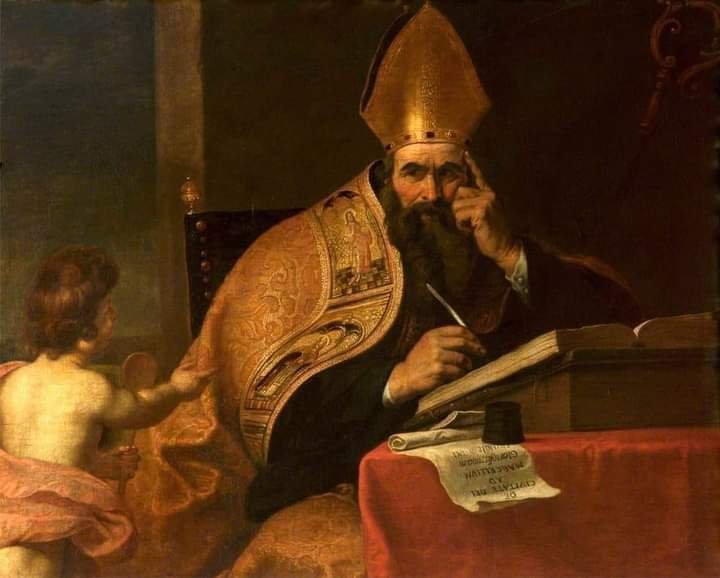
Augustine was born in 354 in the municipium of Thagaste (now Souk Ahras, Algeria) in the Roman province of Numidia. His mother, Monica or Monnica, was a devout Christian; his father Patricius was a pagan who converted to Christianity on his deathbed. He had a brother named Navigius and a sister whose name is lost but is conventionally remembered as Perpetua.
Scholars generally agree Augustine and his family were Berbers, an ethnic group indigenous to North Africa, but were heavily Romanized, speaking only Latin at home as a matter of pride and dignity. In his writings, Augustine leaves some information as to the consciousness of his African heritage. For example, he refers to Apuleius as “the most notorious of us Africans,” to Ponticianus as “a country man of ours, insofar as being African,” and to Faustus of Mileve as “an African Gentleman”.
Augustine’s family name, Aurelius, suggests his father’s ancestors were freedmen of the gens Aurelia given full Roman citizenship by the Edict of Caracalla in 212. Augustine’s family had been Roman, from a legal standpoint, for at least a century when he was born.
It is assumed his mother, Monica, was of Berber origin, on the basis of her name, but as his family were honestiores, an upper class of citizens known as honorable men, Augustine’s first language was likely Latin.
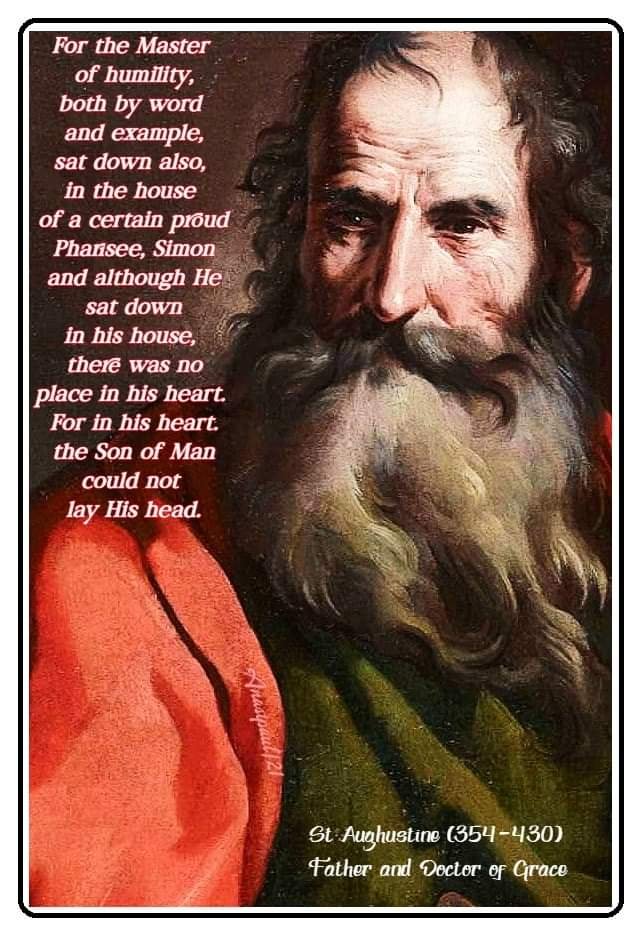
At the age of 11, Augustine was sent to school at Madaurus (now M’Daourouch), a small Numidian city about 31 kilometres (19 miles) south of Thagaste. There he became familiar with Latin literature, as well as pagan beliefs and practices. His first insight into the nature of sin occurred when he and a number of friends stole fruit they did not want from a neighborhood garden. He tells this story in his autobiography, The Confessions.
He remembers he stole the fruit, not because he was hungry, but because “it was not permitted.” His very nature, he says, was flawed. ‘It was foul, and I loved it. I loved my own error—not that for which I erred, but the error itself.” From this incident he concluded the human person is naturally inclined to sin, and in need of the grace of Christ.
At the age of 17, through the generosity of his fellow citizen Romanianus, Augustine went to Carthage to continue his education in rhetoric, though it was above the financial means of his family. In spite of the good warnings of his mother, as a youth Augustine lived a hedonistic lifestyle for a time, associating with young men who boasted of their sexual exploits.
The need to gain their acceptance forced inexperienced boys like Augustine to seek or make up stories about sexual experiences. It was while he was a student in Carthage that he read Cicero’s dialogue Hortensius (now lost), which he described as leaving a lasting impression, enkindling in his heart the love of wisdom and a great thirst for truth. It started his interest in philosophy. Although raised Christian, Augustine became a Manichaean, much to his mother’s chagrin.
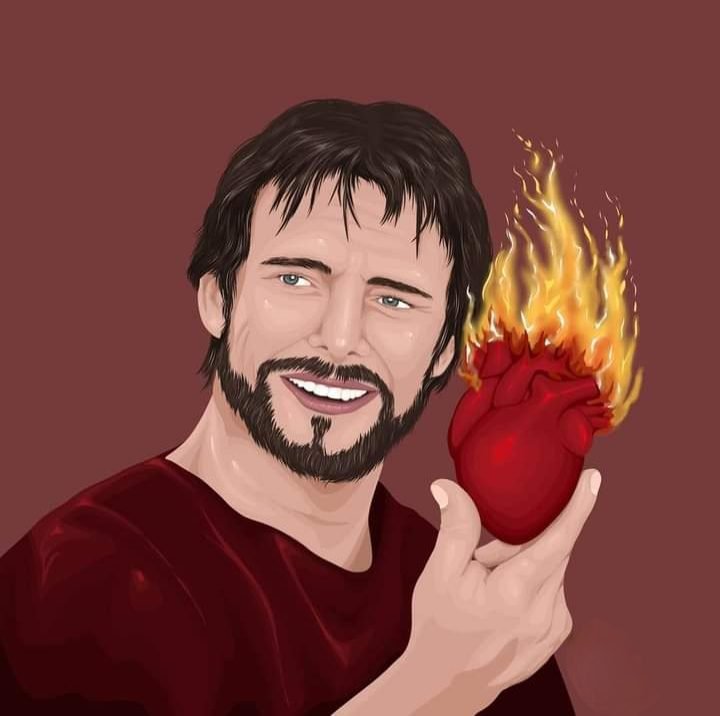
At about the age of 17, Augustine began a relationship with a young woman in Carthage. Though his mother wanted him to marry a person of his class, the woman remained his lover. He was warned by his mother to avoid fornication (sex outside marriage), but Augustine persisted in the relationship for over fifteen years, and the woman gave birth to his son Adeodatus (372–388), which means “Gift from God”, who was viewed as extremely intelligent by his contemporaries.
In 385, Augustine ended his relationship with his lover in order to prepare to marry a teenaged heiress. By the time he was able to marry her, however, he had decided to become a Catholic priest and the marriage did not happen. Augustine was from the beginning a brilliant student, with an eager intellectual curiosity, but he never mastered Greek.
His first Greek teacher was a brutal man who constantly beat his students, and Augustine rebelled and refused to study. By the time he realized he needed to know Greek, it was too late; and although he acquired a smattering of the language, he was never eloquent with it. He did however, become a master of Latin. Augustine taught grammar at Thagaste during 373 and 374.
The following year he moved to Carthage to conduct a school of rhetoric and remained there for the next nine years. Disturbed by unruly students in Carthage, he moved to establish a school in Rome, where he believed the best and brightest rhetoricians practiced, in 383. However, Augustine was disappointed with the apathetic reception.
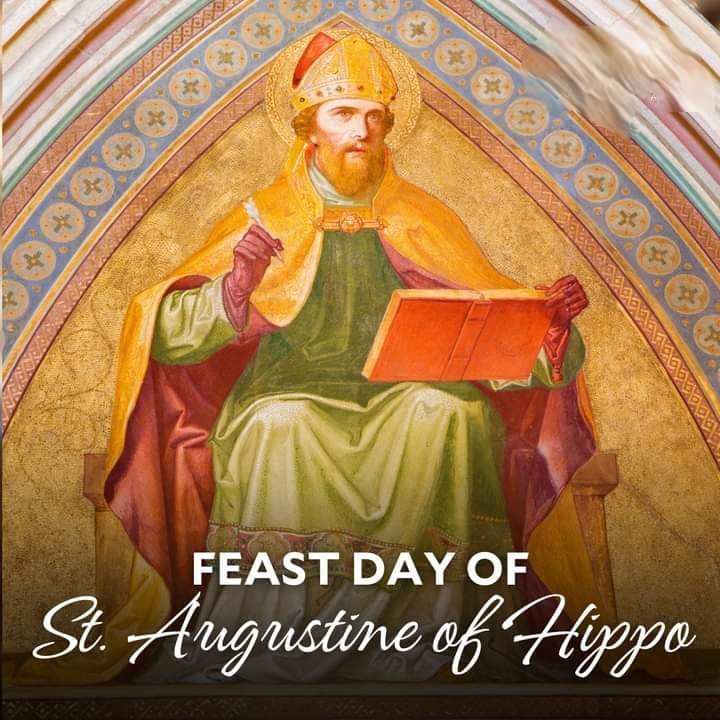
It was the custom for students to pay their fees to the professor on the last day of the term, and many students attended faithfully all term, and then did not pay. Manichaean friends introduced him to the prefect of the City of Rome, Symmachus, who had been asked by the imperial court at Milan to provide a rhetoric professor. Augustine won the job and headed north to take his position in Milan in late 384.
Thirty years old, he had won the most visible academic position in the Latin world at a time when such posts gave ready access to political careers. Although Augustine spent ten years as a Manichaean, he was never an initiate or “elect”, but an “auditor”, the lowest level in this religion’s hierarchy. While still at Carthage a disappointing meeting with the Manichaean Bishop, Faustus of Mileve, a key exponent of Manichaean theology, started Augustine’s scepticism of Manichaeanism.
In Rome, he reportedly turned away from Manichaeanism, embracing the scepticism of the New Academy movement. Because of his education, Augustine had great rhetorical prowess and was very knowledgeable of the philosophies behind many faiths. At Milan, his mother’s religiosity, Augustine’s own studies in Neoplatonism, and his friend Simplicianus all urged him towards Christianity.
This was shortly after the Roman emperor Theodosius I declared Christianity to be the only legitimate religion for the Roman Empire on 27 February 380 by the Edict of Thessalonica and then issued a decree of death for all Manichaean monks in 382. Initially Augustine was not strongly influenced by Christianity and its ideologies, but after coming in contact with Ambrose of Milan, Augustine reevaluated himself and was forever changed.
Augustine arrived in Milan and visited Ambrose, having heard of his reputation as an orator. Like Augustine, Ambrose was a master of rhetoric, but older and more experienced. Soon, their relationship grew, as Augustine wrote, “And I began to love him, of course, not at the first as a teacher of the truth, for I had entirely despaired of finding that in thy Church—but as a friendly man.”
Augustine was very much influenced by Ambrose, even more than by his own mother and others he admired. In his Confessions, Augustine states, “That man of God received me as a father would, and welcomed my coming as a good bishop should.”[79] Ambrose adopted Augustine as a spiritual son after the death of Augustine’s father.[80]
Augustine’s mother had followed him to Milan and arranged a respectable marriage for him. Although Augustine acquiesced, he had to dismiss his concubine and grieved for having forsaken his lover. He wrote, “My mistress being torn from my side as an impediment to my marriage, my heart, which clave to her, was racked, and wounded, and bleeding.”
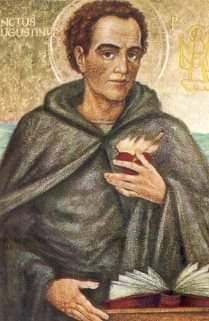
Augustine confessed he had not been a lover of wedlock so much as a slave of lust, so he procured another concubine since he had to wait two years until his fiancée came of age. However, his emotional wound was not healed. It was during this period that he uttered his famously insincere prayer, “Grant me chastity and continence, but not yet.”
There is evidence Augustine may have considered this former relationship to be equivalent to marriage. In his Confessions, he admitted the experience eventually produced a decreased sensitivity to pain. Augustine eventually broke off his engagement to his eleven-year-old fiancée, but never renewed his relationship with either of his concubines.
Alypius of Thagaste steered Augustine away from marriage, saying they could not live a life together in the love of wisdom if he married. Augustine looked back years later on the life at Cassiciacum, a villa outside of Milan where he gathered with his followers, and described it as Christianae vitae otium – the leisure of Christian life.
In late August of 386, at the age of 31, having heard of Ponticianus’s and his friends’ first reading of the life of Anthony of the Desert, Augustine converted to Christianity. As Augustine later told it, his conversion was prompted by hearing a child’s voice say “take up and read” (Latin: tolle, lege).
Resorting to the Sortes Sanctorum, he opened a book of St. Paul’s writings (codex apostoli, 8.12.29) at random and read Romans 13: 13–14: Not in rioting and drunkenness, not in chambering and wantonness, not in strife and envying, but put on the Lord Jesus Christ, and make no provision for the flesh to fulfill the lusts thereof.
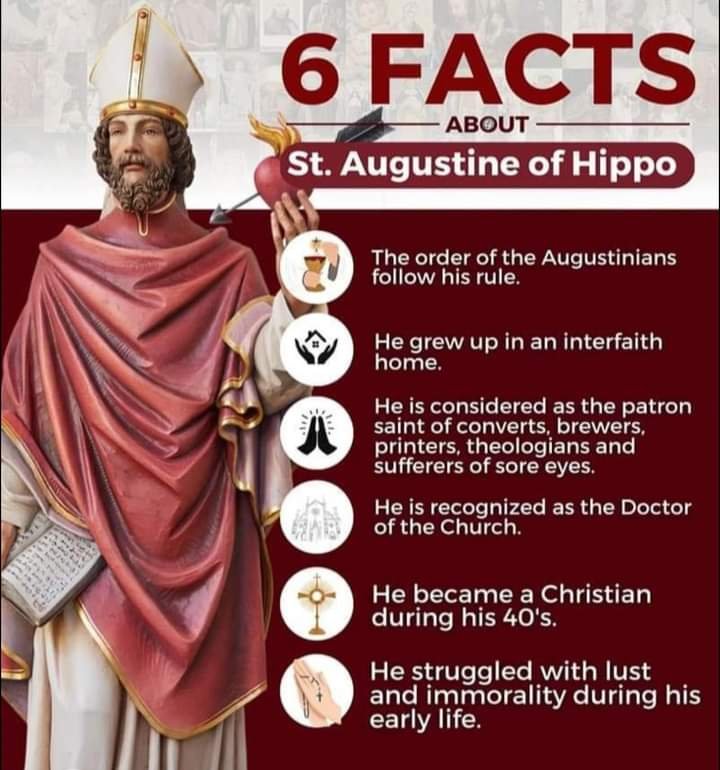
He later wrote an account of his conversion in his Confessions (Latin: Confessiones), which has since become a classic of Christian theology and a key text in the history of autobiography. This work is an outpouring of thanksgiving and penitence. Although it is written as an account of his life, the Confessions also talks about the nature of time, causality, free will, and other important philosophical topics. The following is taken from that work:
Ambrose baptized Augustine and his son Adeodatus, in Milan on Easter Vigil, 24–25 April 387. A year later, in 388, Augustine completed his apology On the Holiness of the Catholic Church. That year, also, Adeodatus and Augustine returned home to Africa. Augustine’s mother Monica died at Ostia, Italy, as they prepared to embark for Africa. Upon their arrival, they began a life of aristocratic leisure at Augustine’s family’s property.
Soon after, Adeodatus, too, died. Augustine then sold his patrimony and gave the money to the poor. He only kept the family house, which he converted into a monastic foundation for himself and a group of friends. Furthermore, while he was known for his major contributions regarding Christian rhetoric, another major contribution was his preaching style.
After converting to Christianity, Augustine turned against his profession as a rhetoric professor in order to devote more time to preaching. In 391 Augustine was ordained a priest in Hippo Regius (now Annaba), in Algeria. He was especially interested in discovering how his previous rhetorical training in Italian schools would help the Christian Church achieve its objective of discovering and teaching the different scriptures in the Bible.
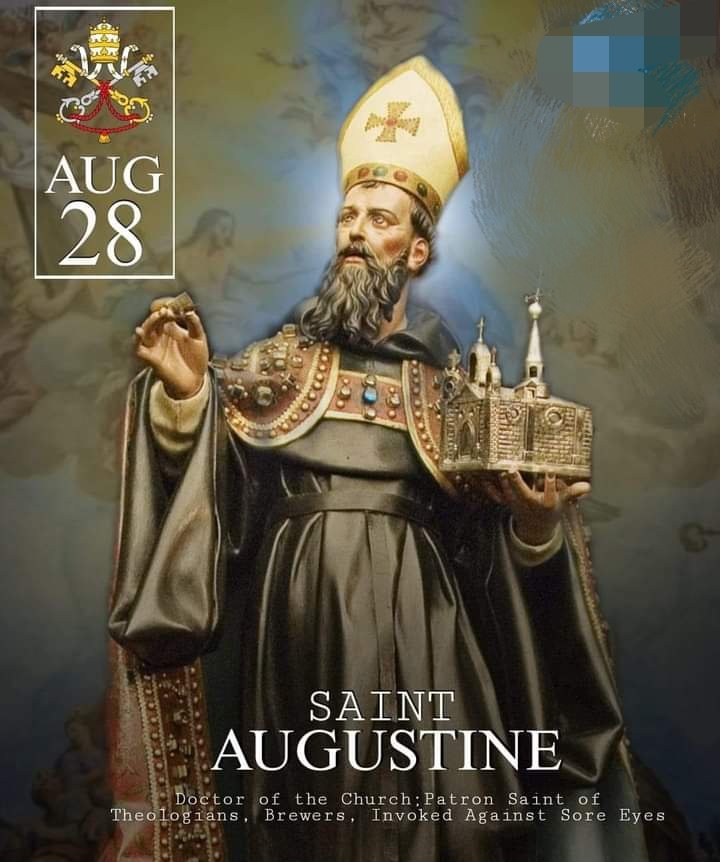
He became a famous preacher (more than 350 preserved sermons are believed to be authentic), and was noted for combating the Manichaean religion, to which he had formerly adhered. He preached around 6,000 to 10,000 sermons when he was alive; however, there are only around 500 sermons that are accessible today. When Augustine preached his sermons, they were recorded by stenographers.
Some of his sermons would last over one hour and he would preach multiple times throughout a given week. When talking to his audience, he would stand on an elevated platform; however, he would walk towards the audience during his sermons. When he was preaching, he used a variety of rhetorical devices that included analogies, word pictures, similes, metaphors, repetition, and antithesis when trying to explain more about the Bible.
In addition, he used questions and rhymes when talking about the differences between people’s life on Earth and heaven as seen in one of his sermons that was preached in 412 AD. Augustine believed that the preachers’ ultimate goal is to ensure the salvation of their audience. In 395, he was made coadjutor Bishop of Hippo and became full Bishop shortly thereafter, hence the name “Augustine of Hippo”; and he gave his property to the church of Thagaste.
He remained in that position until his death in 430. Bishops were the only individuals allowed to preach when he was alive and he scheduled time to preach after being ordained despite a busy schedule made up of preparing sermons and preaching at other churches besides his own. When serving as the Bishop of Hippo, his goal was to minister to individuals in his congregation and he would choose the passages that the church planned to read every week.
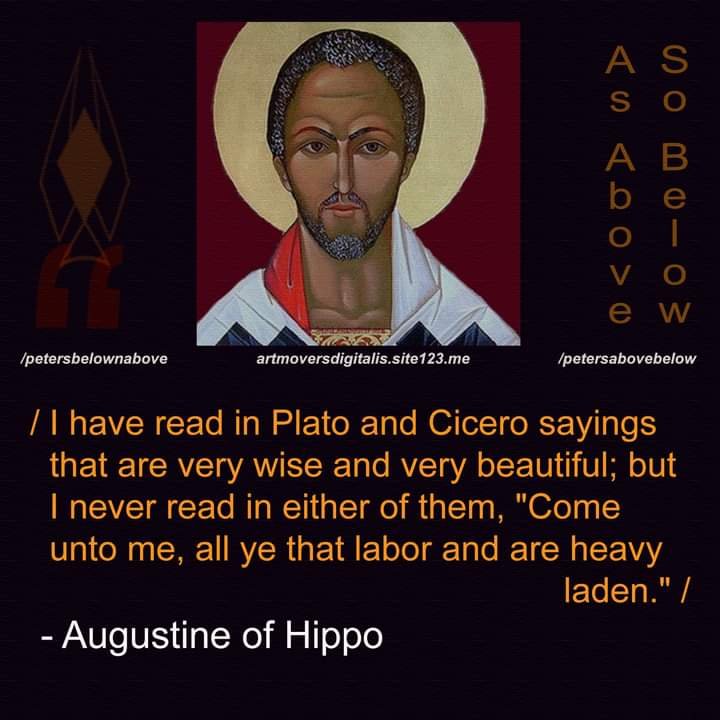
As bishop, he believed that it was his job to interpret the work of the Bible. He wrote his autobiographical Confessions in 397–398. His work The City of God was written to console his fellow Christians shortly after the Visigoths had sacked Rome in 410. Augustine worked tirelessly to convince the people of Hippo to convert to Christianity. Though he had left his monastery, he continued to lead a monastic life in the episcopal residence.
Much of Augustine’s later life was recorded by his friend Possidius, bishop of Calama (present-day Guelma, Algeria), in his Sancti Augustini Vita. During this latter part of Augustine’s life, he helped lead a large community of Christians against different political and religious factors which had major influence on his writings.

Possidius admired Augustine as a man of powerful intellect and a stirring orator who took every opportunity to defend Christianity against its detractors. Possidius also described Augustine’s personal traits in detail, drawing a portrait of a man who ate sparingly, worked tirelessly, despised gossip, shunned the temptations of the flesh, and exercised prudence in the financial stewardship of his see.
Shortly before Augustine’s death, the Vandals, a Germanic tribe that had converted to Arianism, invaded Roman Africa. The Vandals besieged Hippo in the spring of 430, when Augustine entered his final illness.
According to Possidius, one of the few miracles attributed to Augustine, the healing of an ill man, took place during the siege. Augustine has been cited to have excommunicated himself upon the approach of his death in an act of public penance and solidarity with sinners.
Spending his final days in prayer and repentance, he requested the penitential Psalms of David be hung on his walls so he could read them and upon which led him to ‘weep freely and constantly’ according to Posiddius’ biography. He directed the library of the church in Hippo and all the books therein should be carefully preserved.

He died on 28 August 430. Shortly after his death, the Vandals lifted the siege of Hippo, but they returned soon after and burned the city. They destroyed all but Augustine’s cathedral and library, which they left untouched.
Augustine was canonized by popular acclaim, and later recognized as a Doctor of the Church in 1298 by Pope Boniface VIII. His feast day is 28 August, the day on which he died. He is considered the patron saint of brewers, printers, theologians, and a number of cities and dioceses. He is invoked against sore eyes.
According to Bede’s True Martyrology, Augustine’s body was later translated or moved to Cagliari, Sardinia, by the Catholic bishops expelled from North Africa by Huneric. Around 720, his remains were transported again by Peter, bishop of Pavia and uncle of the Lombard king Liutprand, to the church.
of San Pietro in Ciel d’Oro in Pavia, in order to save them from frequent coastal raids by Saracens. In January 1327, Pope John XXII issued the papal bull Veneranda Santorum Patrum, in which he appointed the Augustinians guardians of the tomb of Augustine (called Arca), which was remade in 1362 and elaborately carved with bas-reliefs of scenes from Augustine’s life.
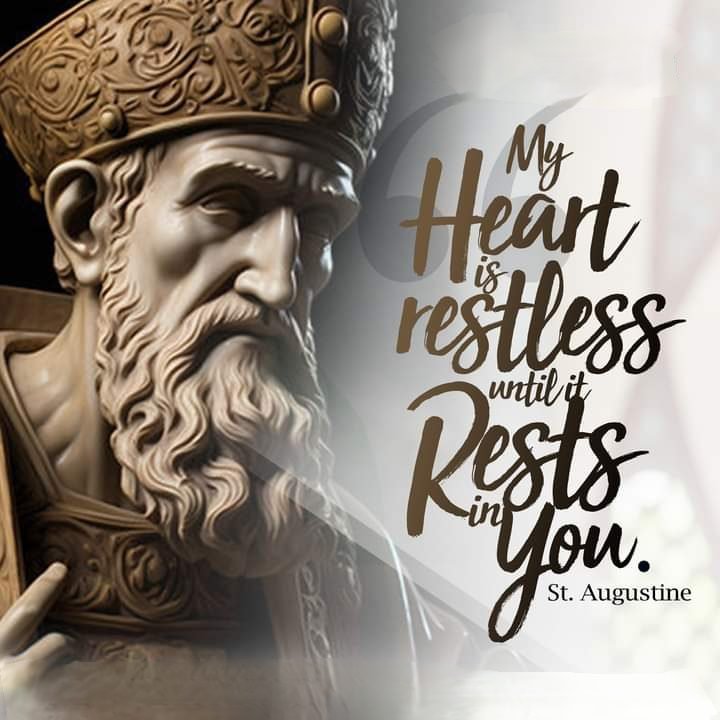
In October 1695, some workmen in the Church of San Pietro in Ciel d’Oro in Pavia discovered a marble box containing human bones (including part of a skull). A dispute arose between the Augustinian hermits (Order of Saint Augustine) and the regular canons (Canons Regular of Saint Augustine) as to whether these were the bones of Augustine.
The hermits did not believe so; the canons affirmed they were. Eventually Pope Benedict XIII (1724–1730) directed the Bishop of Pavia, Monsignor Pertusati, to make a determination. The bishop declared that, in his opinion, the bones were those of Saint Augustine. The Augustinians were expelled from Pavia in 1700, taking refuge in Milan with the relics of Augustine, and the disassembled Arca, which were removed to the cathedral there.
San Pietro fell into disrepair, but was finally rebuilt in the 1870s, under the urging of Agostino Gaetano Riboldi, and reconsecrated in 1896 when the relics of Augustine and the shrine were once again reinstalled. In 1842, a portion of Augustine’s right arm (cubitus) was secured from Pavia and returned to Annaba. It now rests in the Saint Augustin Basilica within a glass tube inserted into the arm of a life-size marble statue of the saint.
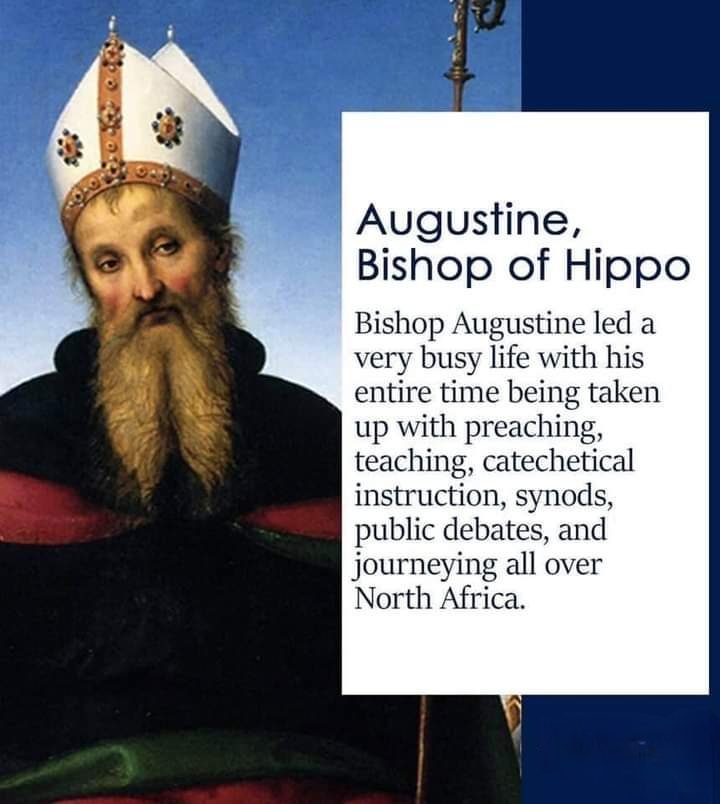
PRAYER
Saint Augustine, we know that we need God’s grace to advance towards salvation and know in humble acceptance that we cannot save ourselves. We need the favor of the Most High, granted to us through the salvation earned for us by his Son.
Similarly, we rely on those who have attained salvation, to help us have access to that grace. Through your intercession with God, help to make our lives better, to avoid dangers and sins, to grow in love, virtue and good works.
Saint Augustine, you know fully well the dreadful troubles that beset us on our journey of life. Help ease our pain and sorrow by interceding with God to make our struggle easier.Saint Augustine of Hippo, pray for us all.
